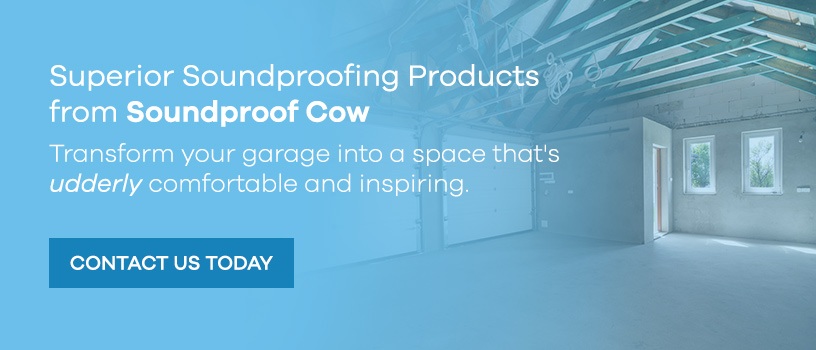-
Why Do You Need Garage Soundproofing?
- Your garage is your haven. It’s your workshop, auto repair shop, storage area and where you keep your car or bike. The problem is, your garage is noisy. Your family complains about the noise of the garage door. Your neighbors complain about the noise of your tools. You can’t spend time in your garage without worrying about others. It’s wasted space. Add into the mix your kid wanting to use your garage for band practice, and you really need garage soundproofing. Soundproofing a garage can return your garage to the peaceful escape you’ve always wanted it to be. You can use it as you please without worrying about disturbing neighbors or your own family.
-
What Can Garage Soundproofing Do for You?
-
- Reduce noise distractions so you’re more productive. Working in the garage often requires focus. Do what you need to do without the outside world interfering.
- Cut down on the number of complaints from your family and neighbors, so you don’t have to worry about others.
- Gives you the freedom to use your garage however you’d like, without needing to keep the noise levels down
- Increase privacy and security. No one outside needs to know when or how you are working in your garage.
-
How Do You Soundproof Your Garage?
- Soundproof Cow has all the materials you need to soundproof a garage. But do you know how to soundproof a garage? If you’ve never done it before, the idea sounds pretty intimidating — but it’s actually fairly simple to soundproof a garage. Here are the basic steps. Essentially, you will be creating a soundproof room in your garage. Frame the Perimeter of the space, and install Quiet Batt 30® Soundproofing Insulation. Additional materials such as Quiet Barrier® Soundproofing material and Isotrax Soundproofing system can be added to increase performance before you hang your drywall. While this should significantly increase the soundproofing in your garage, you can further insulate against unwanted sound with sound absorption materials such as panels or acoustic foam on the drywall or the ceiling. You will be amazed at the difference it makes when you insulate your garage from sound with Soundproof Cow soundproofing products. Give it a try!

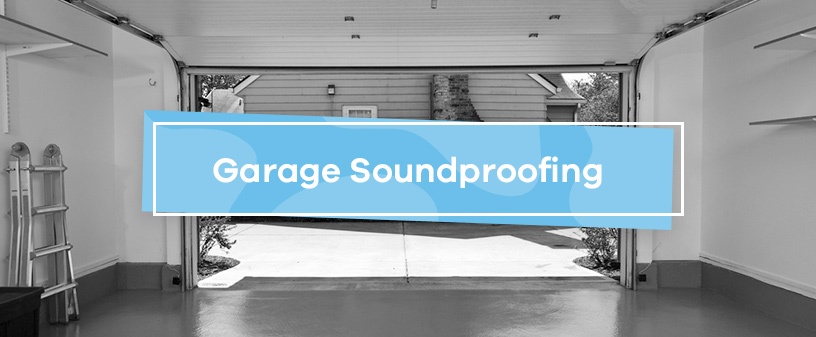 Are you dreaming of jamming in your garage without having your neighbors as an audience? Or is your garage your hobby haven where you like to happily hammer away on different projects? No matter how you spend time in your garage, a soundproof garage is a happy place to be –– and be around.
Are you dreaming of jamming in your garage without having your neighbors as an audience? Or is your garage your hobby haven where you like to happily hammer away on different projects? No matter how you spend time in your garage, a soundproof garage is a happy place to be –– and be around.
You can soundproof a garage by reducing noise transmission and improving acoustic quality with soundproofing materials like acoustic foam panels, sound isolation systems and soundproof barriers.
At Soundproof Cow, we’re ready to help you turn your garage into your soundproof paradise. We’ll show you how to soundproof a garage, share soundproofing tips and give recommendations for quality garage soundproofing products.
Garage Soundproofing Products
Garage Sound Absorption Products
Benefits of Garage Soundproofing
Besides the obvious benefit of being able to whip out your best drum roll at 11 p.m., there are plenty of advantages to soundproofing your garage for you, your neighbors and your housemates. Here are just a few reasons to consider soundproofing the garage:
- You’ll keep noise in: If neighbors know your songs by heart, it’s probably time for soundproofing. A soundproof garage keeps sound from escaping through walls, windows and doors. When you block sound waves and prevent them from exiting your garage, you can have band practice with peace of mind and use your garage however you wish.
- You’ll keep noise out: Are you tired of trying to compose your next hit over the sound of your neighbor’s dog? A soundproof garage also keeps noise out so you can focus on your projects without interruption.
- You’ll improve the sound quality inside the garage: Soundproofing is not just about blocking sound and reducing noise transmission –– it’s also about improving the sound quality within a space. With a soundproof garage and the right amount of reverb, your band members will be much more satisfied with their performance.
Factors to Consider When Soundproofing the Garage
Before you start a soundproofing project, you’ll want to consider a few things like your budget and garage size so you can choose the best materials for your situation. Consider the following factors:
- What you will use your garage for: Will you be using your garage as a recording studio or as a home office? Knowing what your plans are for your garage will help you choose the appropriate soundproofing materials and whether you only need to block sound, improve the quality of sound or both.
- The garage features: Take a look around your garage. How many windows and doors are there? Windows and doors are typically weak spots because sound waves love to seep through cracks and gaps. To properly soundproof your garage, plan to address any vulnerable areas.
- How the garage was made: Garages may be made of many different materials from metal to concrete, and they may or may not be insulated. The materials of your garage will affect the soundproofing materials you’ll need. For example, if your garage has concrete walls without any insulation, you’ll need to add a sound-absorbing material to the walls to reduce reverberations.
- The type of garage door: To soundproof a garage door, you need to consider what the garage door is made of, how it opens and how often you use it. For example, if you open the garage door every day, you’ll have to select a soundproofing method carefully. On the other hand, if you never open the garage door, you’re free to block off the door with soundproofing products completely.
How to Soundproof a Garage
Soundproofing is all about blocking sound waves to reduce noise transmission and absorbing sound waves to reduce echoes and reverberations. To block sound waves, you need to close up gaps and add mass. To absorb sound waves, you need to reduce the amount of hard, reflective surfaces in the room and add sound-absorbing materials. If you’re wondering how to soundproof a garage cheaply, you can apply most of the following techniques using soundproofing materials that fit into your budget:
1. Hang soundproofing material above the door to reduce noise
Garage doors may be made of anything from steel to wood. These materials are hard surfaces that reflect sound. Depending on the density of the door, it may also not be very good at blocking sound. For example, a steel door with a hollow core only has a sound transmission class (STC) rating of 17, which is not very high. Soundproofing a metal garage door that rolls up can be a challenge, but you still have options. If you regularly use the door and cannot block it off, you can install a curtain rod above the garage door and hang soundproofing material such as mass loaded vinyl (MLV) or an acoustic quilt.
2. Replace old doors with insulated doors
Another way to keep sound from escaping through the garage door is to replace the doors with insulated doors. Although this may not be the most budget-friendly option, it can be a worthwhile investment if you have old uninsulated doors. Insulated doors will help block sound and keep the garage a more comfortable temperature.
3. Soundproof the walls
Garage walls are commonly uninsulated because they were built to house cars –– not be recording studios or home offices. Without insulation or sufficient mass, there’s nothing to block sound waves and prevent them from passing through. You can install soundproofing materials directly to the supports if they are exposed, or adhere soundproofing materials to the walls to add insulation and absorb sound.
4. Soundproof garage floors and ceiling
After you soundproof the doors and walls, you may be ready to get out your guitar and write a song about soundproofing, but you’re not there just yet. You can’t forget to address the ceilings and floors, and these often hard surfaces are prime locations for reflecting sound. To soundproof garage floors, you can lay down carpeting if you’re not worried about car oil or other stains. You can also install flooring materials designed to improve sound quality. To soundproof the ceiling in the garage, you might install a drop ceiling if your budget allows and if it won’t interfere with a rolling garage door. For a more cost-effective solution, consider installing acoustic foam panels or hanging baffles.
5. Seal doors and windows
If your garage door swings open, it should be much easier to soundproof than a door that slides or rolls open. You can use door seals and sweeps to keep sound from seeping through. Look for gaps around windows as well, and make sure to seal those with acoustical sound sealant or soundproofing tape. Also, hang noise-blocking curtains over windows.
Tips for Soundproofing Your Garage for Drums and Other Instruments
Wondering how to soundproof your garage for that shiny drum set of yours? If you want to soundproof your garage for drums or band practice, you need to control decibels levels as well as frequencies. To understand frequency, first, consider what sound waves are. Sound waves are movements of air molecules that reach our ears and translate to sound. Frequency measures the number of cycles sound waves complete in a second. Hertz (Hz) is the unit used to measure frequency. A higher Hz represents a higher frequency sound, while a lower Hz is a lower frequency sound. Consider that a double bass goes as low as 41.2 Hz, while a violin can reach as high as 2637 Hz.
Drums are loud, and commonly reach up to 120 decibels and produce a low frequency from the bass drum. Low frequencies, in particular, can be problematic when it comes to soundproofing because low frequencies demand a lot of mass. The long wavelengths of low-frequency sounds pass through materials easily and require more density to be stopped. So, in addition to following the above steps, you’ll want to focus on adding mass to soundproof a garage for drums. Here are some soundproofing tips musicians will want to keep in mind:
- Build a room inside a room: Building a room within a room, also known as decoupling, is perhaps the best way to soundproof a jam space because it keeps low frequencies from bass and drums from traveling outside. You can create walls using fiberboard and then line the walls with acoustic products to block and absorb sound. Aim to create a separate floor or platform in the new room and add a ceiling to keep sound from escaping. Lay an acoustic foam under the studio floorboard or platform.
- Use resilient channels: Sound waves in the garage pass right through drywall and the wooden supports. Resilient channels are metal beams that act as shock absorbers to keep sound from vibrating through the walls. They are used to improve the soundproofing capabilities of materials like drywall by isolating the drywall from the studs. You can also replace old insulation with soundproofing materials such as MLV to create a sturdy soundproof wall. If removing drywall and installing resilient channels and MLV is not an option, consider adhering MLV or acoustic panels to existing walls.
- Combine techniques: The more soundproofing layers you can add to your garage, the better you can block high and low frequencies and improve the sound in your space. Make sure to soundproof your windows, garage doors, ceilings, and floors in addition to building a room within a room or adding resilient channels. With all these methods combined, you’ll maximize the soundproofing capabilities.
Tips for Soundproofing Your Garage for a Workshop
If you use your garage as a workshop, it can get just as loud or louder than if you had a rock band practicing there. For example, a hand drill can reach 98 decibels (dB), a chainsaw 110 dB and a hammer drill 114 dB. It’s worth noting that prolonged exposure to sound above 85 dB can start to damage hearing, while noise above 120 dB can cause immediate harm. Woodworkers need to wear hearing protection but can also protect those around them through soundproofing. In a soundproof workshop, you’ll enjoy the freedom to work when you want, and you won’t have to worry about affecting those around you. Here are soundproofing tips specifically for a garage workshop:
- Locate the source of the sound: First, figure out which tools are the sources of noise in your shop. It could be the high frequency of your shop vacuum or the noise of hand-held power tools. You’ll likely have a range of frequencies in your shop that you’ll need to address.
- Install vibration isolation blocks: Use rubber isolation blocks to separate tools from their base or cart. Make sure metal tool stands are bolted down and fastened firmly. These steps will reduce vibration noise.
- Apply sound dampening materials to metal machine cabinets: Line metal cabinets with sound-deadening materials like RoadBlockR™ or Vibra Block®.
- Use sound-absorbing panels: Install acoustic panels on walls and ceilings to absorb sound from tools and machinery. Install soundproofing materials behind noisy machines that are against the wall.
- Place rubber beneath machines: Cover the floor with a sound-absorbing underlayment such as our Impact Barrier QT to minimize vibrations. It also helps to use rubber wheels for machines.
Garage Soundproofing Products Available at Soundproof Cow
At Soundproof Cow, we’ve developed soundproofing products that help our customers keep doing what they love, whether that means playing in a punk rock cover band or building furniture for a living. If your garage is your sanctuary and place of creative expression, we’re here to help you keep it that way. Here are some of our recommended products to help you build your soundproof garage.
1. IsoTrax® Sound Isolation System
Our IsoTrax® Sound Isolation System may be the perfect soundproofing solution for your garage. This is the best soundproofing system we have to offer at the Cow. IsoTrax® is designed to be applied before drywall is installed. If your garage currently has unfinished walls, or if you’re building or remodeling your garage, IsoTrax® will help you incorporate soundproofing into the construction for the ultimate quiet space. It can also be applied to the ceilings.
So, what is the IsoTrax® system? IsoTrax® adds dense mass to stop those low bass frequencies and keep them from seeping through the walls. It also keeps out sound. IsoTrax® uses sound deadening pads and isolation rails installed directly to the wall assembly. This keeps the drywall separate from the studs to effectively reduce vibrational noise and airborne noise like no other product.
2. Quiet Barrier® HD Soundproofing Material
Our Quiet Barrier® HD Soundproofing Material with pressure-sensitive adhesive (PSA) is one of our best-selling products. This high-density soundproofing material adds mass to block noise and dampen vibrations effectively. It’s available in a variety of lengths and widths and is easy to install with the PSA backing. You only need to peel and stick it in place to walls or ceilings to block noise.
Request an Acoustic Panel Quote
3. Acoustic Panels
Acoustic panels are easy to mount to the walls or ceilings. Acoustic panels are a must-have if you wish to improve the acoustic quality of a space because they absorb sound waves to reduce reverberations. We offer the following types of acoustic panels:
- Fabric-Wrapped Acoustic Panels: We offer a range of attractive easy-to-install Fabric-Wrapped Acoustic Panels to improve the audio quality of your band practice space or recording studio. For example, our Udderly Quiet® 200 Series is our popular all-purpose panel which features a glass mineral wool core and acoustic fabric covering designed to absorb unwanted sound.
- Quiet Board™ Water Resistant Panels: Our Quiet Board™ Water Resistant Panels are perfect for garages that get messy. These water-resistant acoustic panels are made with a Styrofoam-like material that absorbs sound, is extremely durable, easy to clean, and easy to apply to a variety of surfaces.
- Echo Absorber™ Acoustic Cotton Panels: Our Echo Absorber™ Acoustic Cotton Panels are an environmentally friendly, cost-effective soundproofing solution. These panels can be applied to walls or ceilings to absorb sound waves and reduce the noise of all frequencies. They can also be installed inside wall paneling to prevent noise transmission.
 4. Foam Panels
4. Foam Panels
Acoustic foam is easy to install, versatile and works to absorb a range of frequencies. We offer easy peel-and-stick solutions so you can transform your garage as fast as you can shred on guitar. Here’s what we’ve got:
- Acoustic Foam Panels: We offer a variety of Acoustic Foam Panels which offer superior sound-absorbing properties. For example, our Acoustic Foam With a Reinforced Aluminum Facing provides protection against tears in addition to easy installation and high-performing sound absorption. Our regular Acoustic Foam Panels are made with flexible polyurethane foam and combine style with affordability.
- Class A™ Acoustic Foam Panels: If you need soundproofing materials that can handle high heat, consider our Class A™ Acoustic Foam Panels. These sound-absorbing panels reduce noise wherever sparks may fly and can be easily installed to a range of surfaces.
Get Started On Your Garage Soundproofing by Taking Our Free Acoustic Analysis
When you’re pouring your heart out on your musical instrument, it may be the most beautiful sound you have ever heard. However, your song will only be noise to your neighbors if they’re trying to sleep. At Soundproof Cow, we aim to make everyone happy with superior soundproofing products and exceptional customer service.
Ready to transform your garage into a space that’s udderly comfortable and inspiring by reducing noise transmission and improving acoustic quality? Reach out to us for more information on the best sound solutions for your garage or take our Free Acoustic Analysis today!
Soundproof Other Spaces

I just wanted to send a quick thank you for your rapid response and helpfulness. I very much appreciated it. You have been responsive in every way all through the process. It has been a pleasure doing business with you and your company.
- T. Alexander


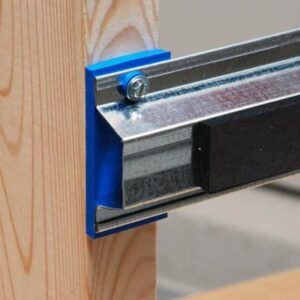
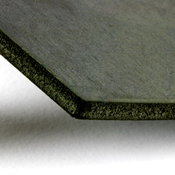

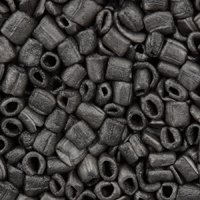
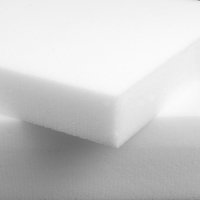
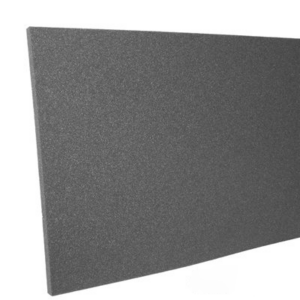
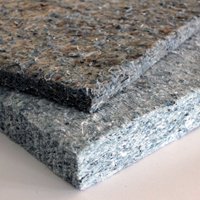
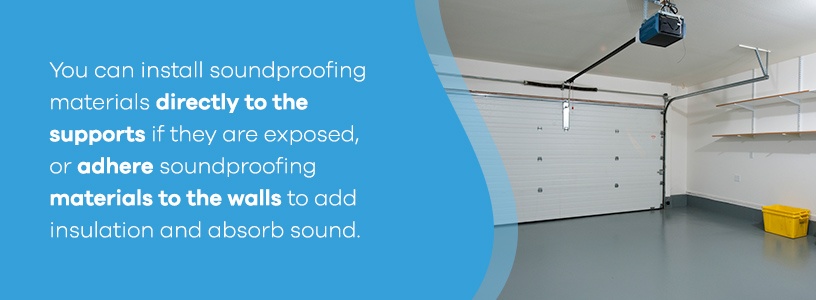
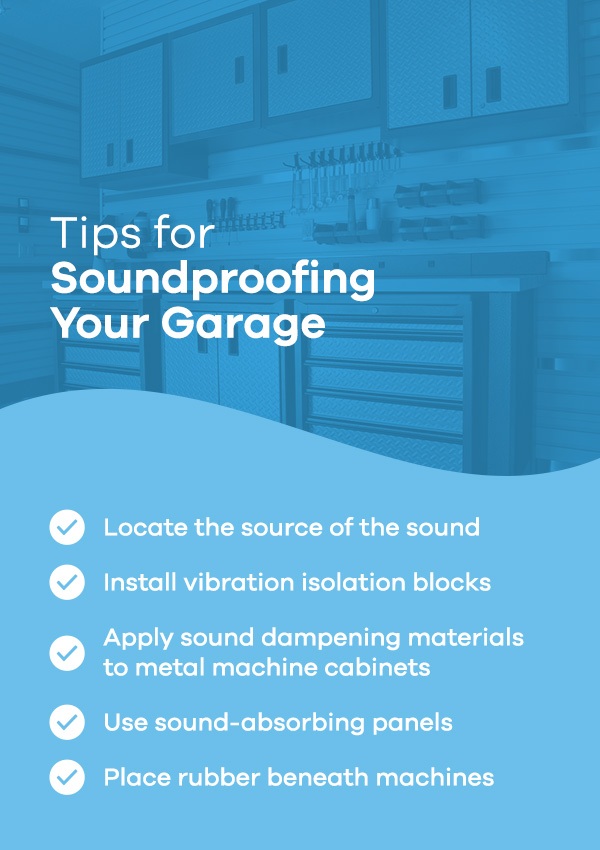
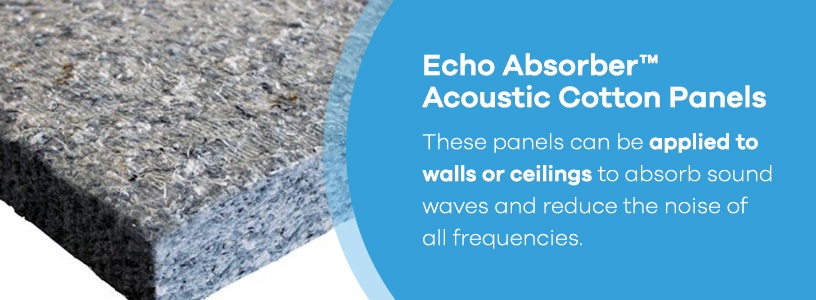 4. Foam Panels
4. Foam Panels